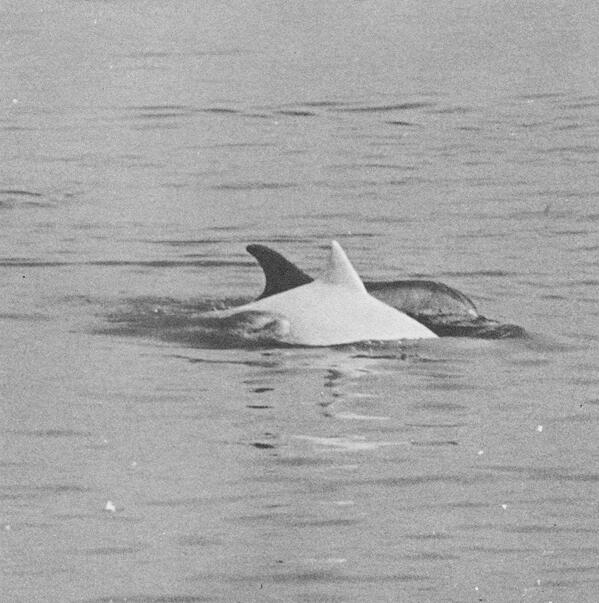 This is a picture of Carolina Snowball in 1962. She was captured for the Miami Seaquarium in August of that year off the coast of South Carolina, which subsequently became the first state to ban the capture of marine mammals in their waters.
This is a picture of Carolina Snowball in 1962. She was captured for the Miami Seaquarium in August of that year off the coast of South Carolina, which subsequently became the first state to ban the capture of marine mammals in their waters.Carolina Snowball was a huge hit at the Seaquarium until she died in 1965, but they still saw an opportunity to make a buck off her, so they stuffed her and hung her body from the ceiling, and put one of those make-a-mold machines beneath her. When I was researching Dolphin Sky in 1985, she was still hanging there. When I went this year (again for research, which is the only reason I would spend a nickel at the marine mammal hell-hole,) Carolina Snowball's body was gone. I looked online and found the entire story of her capture with amazing photos of that event and her short life at the Seaquarium.
Carolina Snowball, the entire story
Flash forward 52 years to Taiji, Japan's annual round-up and slaughter of dolphins. (See the movie The Cove if you've just arrived from some other planet.) They captured this white dolphin calf. Story below. I don't know what else to say.
 |
| Albino Dolphin calf |
 |
| Taiji slaughter |
